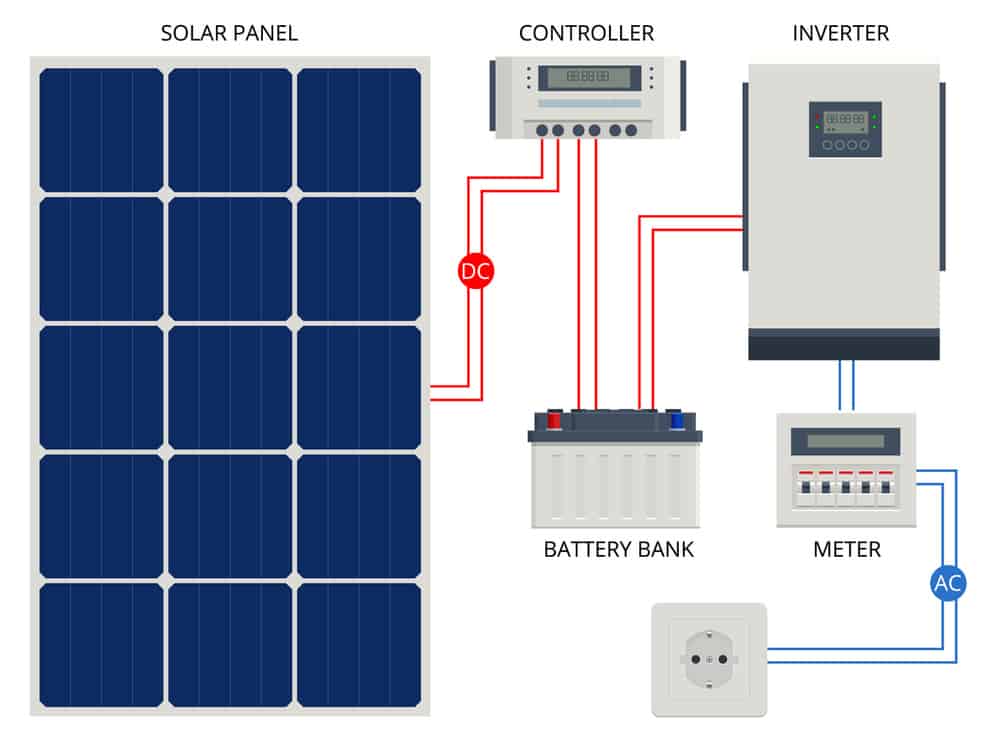Solar Generators: The Eco-Friendly Alternative to Traditional Power Sources
As concerns about climate change and sustainability grow, more people are seeking clean, renewable energy solutions. Solar generators are emerging as a popular, eco-friendly alternative to traditional fossil fuel-based power sources. By harnessing the sun’s energy, solar generators provide reliable, portable electricity without the harmful emissions associated with gas or diesel generators.
How Solar Generators Work
Solar generators operate by converting sunlight into usable electricity through a simple process:
- Photovoltaic (PV) solar panels absorb sunlight and convert it into direct current (DC) electricity.
- A charge controller regulates the current to safely charge the solar generator’s battery bank.
- An inverter converts the stored DC power into alternating current (AC) power, which is compatible with most appliances and devices.
- Output ports, such as AC outlets, USB ports, and 12V DC ports, allow you to power a variety of electronics and appliances.
Key Benefits of Solar Generators
- Zero Emissions and Eco-Friendly
- Unlike fossil fuel-powered generators, which emit harmful pollutants into the air, such as carbon monoxide and nitrogen oxide, solar generators produce clean energy without any emissions.
- By reducing reliance on fossil fuels, solar generators help combat climate change and promote sustainability.
- Quiet Operation
- Unlike gas generators, solar generators have no moving parts and operate silently.
- This makes them ideal for use in noise level sensitive environments like campsites, RV parks, or residential neighborhoods.
- Low Maintenance
- Solar generators have lower maintenance costs compared to gas generators, which need regular fuel refills, oil changes, and tune-ups.
- The solar panels are durable and long-lasting, typically requiring only occasional cleaning to maintain optimal performance.
- Energy Independence and Resilience
- By generating your own electricity, solar generators reduce your reliance on the grid and provide a sense of energy independence.
- During power outages or emergencies, solar generators offer a reliable source of backup power, ensuring you have access to essential appliances and devices.
Choosing the Right Solar Generator
When selecting a solar generator, consider the following factors:
- Power Needs: Determine the wattage of the devices and appliances you plan to power and choose a generator with sufficient output capacity.
- Battery Capacity: Look for a solar generator with a high battery capacity measured in watt-hours (Wh), to ensure ample energy storage for your needs.
- Expandability: If you anticipate your power needs growing in the future, opt for a modular solar generator system that allows for easy expansion with additional solar panels or battery packs.
- Quality Components: Invest in a solar generator with high-efficiency solar panels, a reliable charge controller, and a pure sine wave inverter for optimal performance and compatibility with sensitive electronics. Solar generators may also include other accessories and features, such as smartphone integration.
Embrace Clean, Quiet, Renewable Power
Solar generators offer a compelling, eco-friendly alternative to traditional gas-powered portable generators, providing clean, quiet, and low-maintenance electricity for a variety of applications, such as off-grid living or backup power in natural disasters. Whether you need backup power for your home, a portable power solution for outdoor adventures, or a way to reduce your carbon footprint, there’s a solar generator to fit your needs.
By investing in a solar generator, you’re not only ensuring a reliable source of electricity but also promoting sustainability and energy independence. With a wide range of sizes and capacities available, it’s easier than ever to make the switch to solar power and join the growing movement towards a cleaner, greener future.
FAQs
What are the main types of portable generators, and how do I choose?
Portable generators come in several types: gas-powered (most common), diesel (durable and efficient), propane (cleaner emissions), inverter (quiet and safe for electronics), and dual/tri-fuel (flexible fuel options).
Choose based on your power needs, available fuel, and whether you need to run sensitive electronics.
How do I figure out what size generator I need for a blackout?
List the essential appliances you want to power, check their wattage, and add up the total. Make sure your generator provides enough running and starting watts for these items, with a bit of extra capacity for safety. This ensures you can keep your most important devices running during an outage.
What are the key safety tips for using a portable generator?
Always operate generators outdoors, away from windows and doors, to prevent carbon monoxide poisoning. Never back-feed power into your home’s wiring, and use heavy-duty extension cords rated for outdoor use. Let the generator cool before refueling, and follow all manufacturer instructions for safe operation.

Leave a Reply